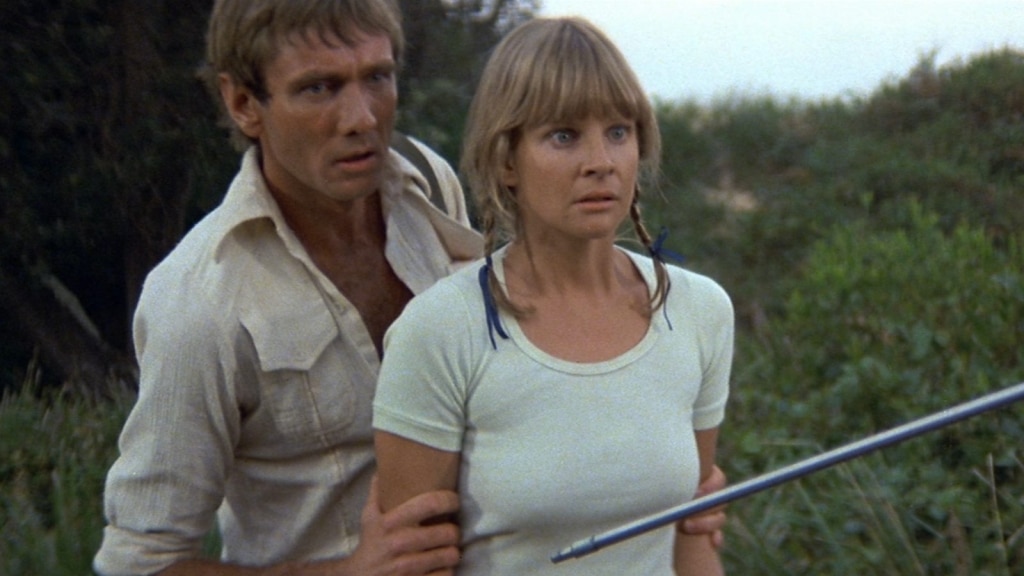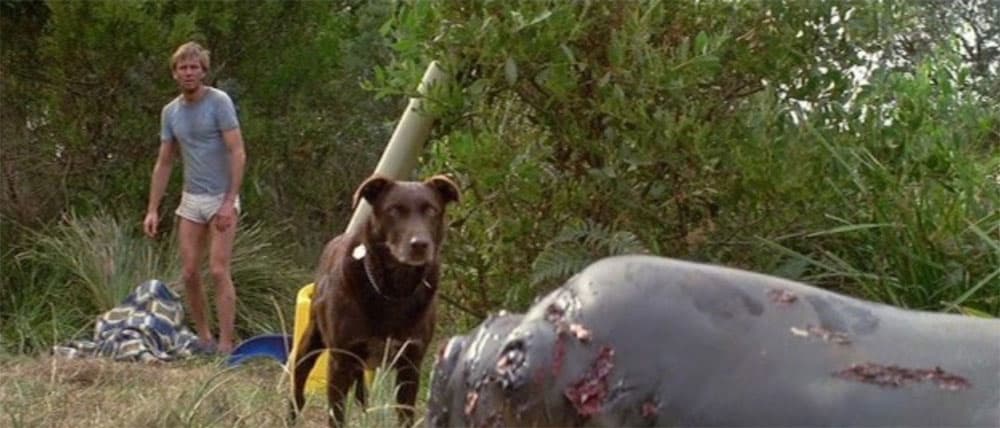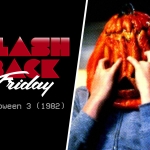The surprisingly unnerving entry in the popular nature horror subgenre of the 70 “Long Weekend” ultimately reveals more about human nature.

Australian genre films from the ‘70s tend to be a little crazy, in a good way. Just think of the original Mad Max (1979) or the absolutely harrowing Wake in Fright (1971).
But 1978’s Long Weekend, about a dysfunctional married couple camping in a remote beach-front wilderness, was genuinely surprising. To be honest, I expected the film to be just another by-the-numbers “animal attack” movie so typical in that decade. Instead, I was confronted with an excruciating dive into the psychological horror of human relations, a turmoil that manifested as nature’s hostility toward disrespectful campers.
Long Weekend’s set-up could not be more straightforward.
We are introduced to our only two significant characters, Peter (played by John Hargreaves) and his wife Marcia (played by Briony Behets). Peter is stereotypically masculine, aggressive, and a bit controlling, unceasingly smoking cigarettes, drinking beers, and shooting his gun throughout the film. Marcia, on the other hand, is quieter but still intense. It’s clear that she has gone through some kind of traumatic event that has left her marriage on the rocks, but we don’t know what it is.
The tension is uncomfortably palpable, bubbling up in moments of outright verbal hostility. The film smartly decides to place the audience in medias res without subjecting us to clunky exposition.
The couple decides to get away from the city for a weekend of relaxing by the beach and hopefully healing their fractured relationship.
Ominous occurrences begin even before they get to their destination. Peter carelessly starts a grass fire with a discarded cigarette butt and later runs over a kangaroo. Clearly, he has little respect for the environment. Once they arrive at the campsite, more weird events ensue. Peter’s harpoon gun inexplicably fires on its own, almost killing Marcia. A van appears on the beach, presumably a second group of campers though we never really encounter them. And most horrifying of all, a plangent, eerie wailing pervades the soundscape at key moments.
This sound is acousmatic – we never see its source. It is never explained whether the wailing is coming from the natural environment or if it is only occurring in the tortured psyches of our characters.
Undecidability haunts the film in general.

And it is this willingness to remain ambiguous that puts Long Weekend a cut above other films in its subgenre.
While marketed as a “nature-bites-back” film in the vein of Day of the Animals (1977), Long Weekend features surprisingly few animal-attack set-pieces. Indeed, the scariest animal in the film is the corpse of a dugong (a manatee-like creature) that always seems to be getting closer to the campsite.
Most of the movie is spent waiting for something awful to happen.
And while a film like Day of the Animals shows the threat of nature to be mostly external to the characters, Long Weekend makes the natural world threatening because of the way it mirrors the internal experiences of its characters.
As Peter and Marcia’s relationship crumbles, so does their relationship with the natural world. Their pain and hatred manifest in how they affect nature and in the reactions of the animals around them.
As I hope is clear so far, I think that Long Weekend is a very successful horror film. It can’t really be reduced to its overly simplistic tagline: “Their crime was against nature. Nature found them guilty.” Yes, Peter and Marcia cavalierly abuse the natural world. But it’s worth noting that our characters are doomed even before they decide to venture onto the beachfront.
Peter and Marcia’s “crimes” happened before the events of the film.
The horror in Long Weekend is primarily psychological and only secondarily or metaphorically natural.

All of that said, the “crimes” themselves might be where the film doesn’t hold up quite as well as it could have.
The decision to place this revelation in the middle of the film instead of at the beginning is genius, as it keeps the audience guessing throughout what could have been a boring first act. But the reveal might come off as a bit exploitative. The film seems to want the audience to see both Peter and Marcia as equally bad partners in the relationship. By today’s standards, however, Marcia’s position is definitely more sympathetic than Peter’s.
Despite this slight hiccup, I still highly recommend Long Weekend.
Animal-themed horror movies rarely scare me, but this one was profoundly creepy.
The film commits to its ambiguity and bleakness, and for that, it deserves to be rediscovered by a new generation of horror fans.
Long Weekend (1978), produced and directed by Colin Eggleston, is streaming on Kanopy. You can also find a 2008/2009 remake on Tubi and other free streaming platforms.














Follow Us!